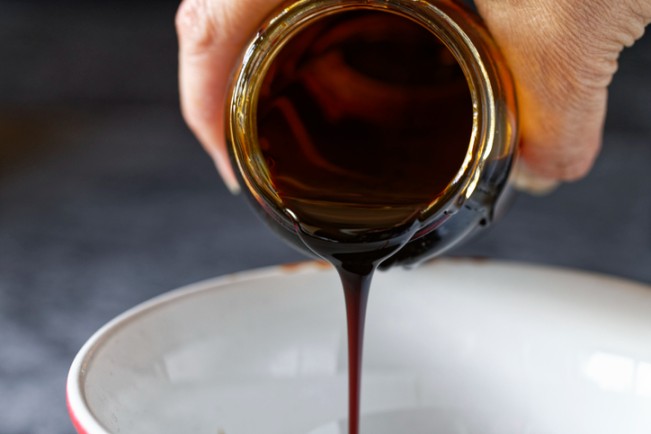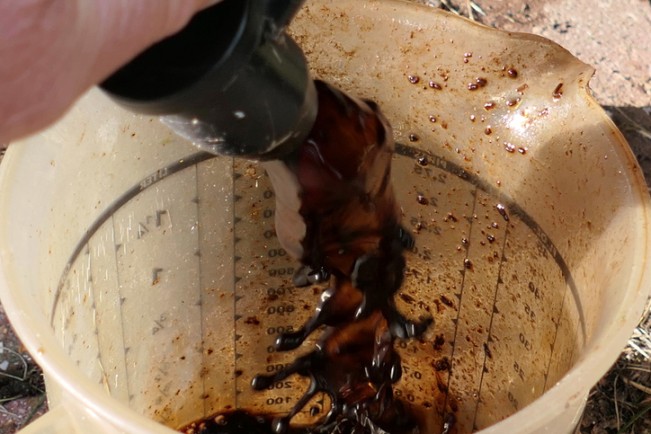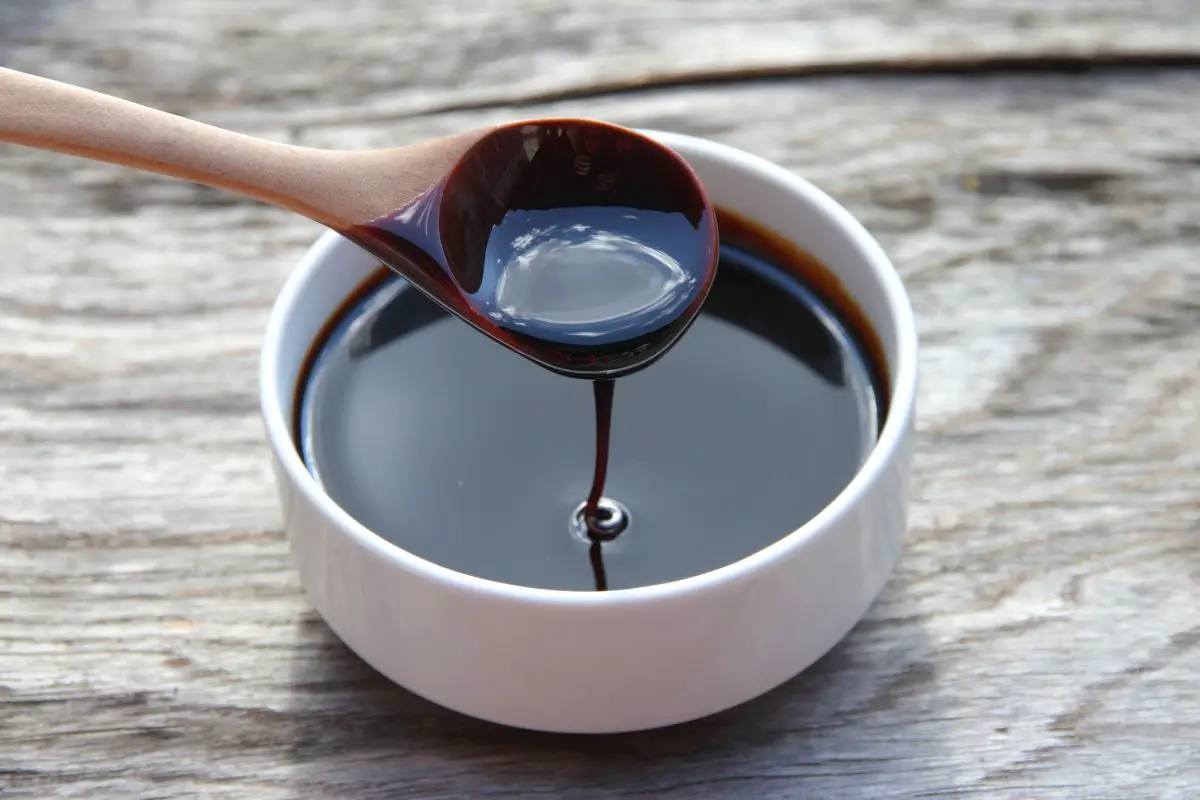Blackstrap molasses is praised as a natural supplement that fatten and sweeten cannabis buds. Most farmers swear by its effectiveness, but does blackstrap molasses contain lead that could pose health risks to cannabis users? Let’s find out!
Cannabis plants, used in producing industrial hemp, medical marijuana, and cannabidiol (CBD) oil, can naturally uptake heavy metals from the soil. This characteristic renders them valuable for detoxifying polluted areas.
However, this capacity to absorb toxic metals from the environment can also pose risks to individuals who consume the resultant cannabis products.
This fact raises the frequently asked question about the lead content in blackstrap molasses, and this guide will answer you.
Table of Contents
Blackstrap Molasses as Fertilizer
Unsulphured blackstrap molasses is a common ingredient in organic fertilizers that supplies plants with the essential carbohydrates and trace minerals required for their well-being. You can blend it into organic liquid fertilizers, such as compost tea, alfalfa meal tea, and kelp.
When you incorporate molasses in organic fertilizers, it nourishes the beneficial microorganisms in the soil. The higher the level of microbial activity in the soil, the healthier the plants will thrive.
For optimal outcomes, adding molasses at a rate of 1 to 3 tablespoons (14-44 ml) per gallon (3.5 L) of fertilizer works wonders.

So, Does Blackstrap Molasses Contain Lead?
Blackstrap molasses itself does not inherently contain lead. However, there is a possibility of trace lead contamination in molasses depending on its source and production methods. If the sugarcane is grown in contaminated soil, then the molasses made from it will most likely have traces of lead.
Benefits of Lead-Free Blackstrap Molasses Fertilizer
Here’s why you should prioritize clean molasses fertilizer with no trace amounts of lead:
Helps Build Soil Nutrition
Including molasses in organic fertilizers nourishes beneficial soil microbes, promoting their growth and vitality. Molasses is a valuable asset in organic gardening as it is an excellent plant fertilizer, enhancing nutrient availability and fostering robust plant development.
Its nutrient content, particularly in blackstrap molasses, includes essential elements for plant growth and development.
The minerals in blackstrap molasses include:
- Calcium: Facilitates enzyme activity and assists in root nutrient absorption.
- Iron: Promotes the production and function of enzymes.
- Potassium: Supports enzyme activity and regulates water within plants.
- Magnesium: Crucial for chlorophyll formation and metabolic processes.
- Sulfur: Contributes to the production of oils, vitamins, proteins, and amino acids.
- Other micronutrients
It Feeds Microbes
Molasses contains sugars like glucose, sucrose, fructose, and micronutrients. Soil-dwelling microbes thrive on sugar as an energy source. Typically, blackstrap molasses is used to effectively feed these microbes, enhancing their activity and improving plant growth.
Helps the Strength of Your Grow Against Pests
Molasses boosts overall plant strength and vitality, improving natural defenses against pests. When combined with milk, molasses becomes an effective remedy against powdery mildew, a common issue with indoor cannabis characterized by a white, powdery substance.
Molasses Is Non-Toxic
Molasses is non-toxic and organic. When purchasing fertilizers, choose organic varieties as they are less likely to contain heavy metal, pesticide, or herbicide residues that could harm beneficial soil microbes or contaminate the final product.
Why Does Molasses Have A Lead Warning?
Molasses has a lead warning due to the possibility of trace amounts of lead present in it, primarily as a result of sugar cane plants absorbing lead from the soil during growth. The lead can be further concentrated during the molasses production process.
While the lead levels in molasses are generally low and not an immediate health concern, food safety regulations in various countries require products to carry warnings if lead levels exceed certain thresholds.
The U.S. Food and Drug Administration (FDA) issued a lead warning regarding blackstrap molasses because the molasses processing method occasionally involves using a direct flame with coals that may contain a significant amount of the caustic substance potash.
How Serious Is The Heavy Metal Problem?
A recent study published in the journal Environmental Health Perspectives revealed that certain marijuana users may exhibit elevated levels of two heavy metals, lead and cadmium, known to be associated with long-term health concerns.
The research involved over 7,200 adults, with 358 reporting marijuana use within the last month of the study. Notably, this group showed a 27% increase in blood lead levels compared to those who did not use either marijuana or tobacco.
Additionally, marijuana users exhibited a 22% elevation in cadmium levels in their blood, and similar outcomes were observed in urine samples.
Conducted by a team at Columbia University, the study underscores the fact that cannabis plants can absorb heavy metals from the soil, which is well-documented. However, this investigation highlights that these heavy metals from cannabis plants can also find their way into the human body.
Prolonged exposure to even low levels of these metals, such as through tobacco smoke, can potentially lead to health issues like kidney disease and weakened bones. Both cadmium and lead tend to linger in the body for years after exposure ceases, and their absorption rate through inhalation is a significant 100%.
Alternatives to Molasses Fertilizer for Cannabis
If you’re unsure about the contents of your molasses or simply seeking alternatives for cannabis fertilization, consider exploring the following potent options:
Manure as A Natural Fertilizer
Manure is a cost-effective way to boost the overall health of your cannabis plants. Available for free or at a low cost from local farms or stables, manure presents a great option for an organic grower.
When employing manure as a natural fertilizer, opt for well-rotted manure because it doesn’t burn your plants. To utilize manure effectively, place a shovel full of well-rotted manure in the planting hole prepared for your plant, followed by a mixture of soil and compost, and proceed with growing your seedlings.
Natural Seaweed Fertilizer
Natural seaweed fertilizer has a rich history of use dating back centuries. This valuable soil ingredient is ideal for mulching soil and nourishing your weed plants. Cannabis prefers acidity and increased iron levels.
Seaweed is rich in mannitol, which enhances plants’ efficient absorption of soil nutrients. Also, its high carbohydrate content provides essential building blocks for robust plant growth.
Fish Tank Water Fertilizer
Using fish tank water can benefit your cannabis plants during their vegetative and early flowering stages due to its high nitrate content and nitrifying bacteria, which efficiently convert ammonia-based nitrogen into a form that plants can readily use.
However, it’s advisable to limit or discontinue the use of fish tank water in the later stages of flowering when excess nitrogen isn’t needed for optimal growth.
And it’s easy to use; simply water your weed plants with it. It’s also gentle on your plants, thus
you can make the most of this nutrient-rich water without compromising their safety.
Eggshells Natural Fertilizer
Eggshells are a valuable natural fertilizer for cannabis plants due to their high calcium content. Calcium is crucial for plant growth and structure and prevents issues like blossom end rot in cannabis.
What sets eggshells apart is their slow-release nature, gradually providing the plant with calcium over time to meet its growth needs. Using eggshells as fertilizer is also eco-friendly, as it recycles kitchen waste and reduces the need for synthetic fertilizers, promoting sustainability.
To use eggshells as a cannabis fertilizer, crush them into small pieces and mix them into the soil or sprinkle them on the surface. Over time, microorganisms in the soil facilitate their decomposition, ensuring a steady supply of calcium for the plants.
While eggshells are beneficial, they should be part of a balanced nutrient regimen, complementing other essential elements like nitrogen, phosphorus, and potassium. Eggshells contribute to overall plant health and can help maintain a stable pH in the soil, but they should not be the sole nutrient source for cannabis cultivation.
Worm Castings Tea
Worm castings tea, derived from nutrient-rich worm excrement and water, offers essential nutrients and beneficial microorganisms that boost cannabis plant health and growth. This natural tea, created by steeping worm castings in water, provides a sustainable and gentle method for nourishing cannabis, enhancing resistance to pests and diseases.
Its organic composition ensures safety for both plants and the environment, and its nutrient-rich content, including nitrogen, phosphorus, and potassium, supports robust growth and soil vitality.

Worm castings tea proves a valuable addition to cannabis cultivation, fostering healthier and more abundant yields without the need for synthetic chemicals.
Sugarcane Molasses Vs. Sorghum Molasses
Despite their similar appearance as thick, dark brown sweeteners, sugarcane and sorghum molasses originate from different plant sources and undergo distinct processing methods.
Traditional molasses is produced during the sugar extraction process from sugarcane, while sorghum molasses is made by boiling the juice extracted from crushed stalks of sorghum plants.
Regarding nutritional content, sorghum molasses boasts higher nutrient levels, including phosphorus and zinc, when compared to regular molasses. Moreover, sorghum molasses tends to have lower sodium content, making it a potentially healthier option for your plants.
Honey vs. Molasses for Plants
Honey can substitute supreme baking molasses as a plant fertilizer, even though it has a distinct nutrient profile that includes various vitamins and minerals. The prevalence of molasses in gardening is primarily due to its cost-effectiveness, making it a more economical choice for many gardeners.
Can Molasses Hurt Plants?
Molasses can benefit cannabis plants if used carefully in a balanced nutrient regimen. It provides carbohydrates and trace minerals that can enhance plant health and nutrient absorption. However, excessive use may disrupt nutrient balance, alter soil pH, and potentially attract pests due to its stickiness.
Therefore, it’s essential to employ molasses judiciously and maintain a watchful eye on your plants to ensure their well-being during cultivation.
In summary, blackstrap molasses itself does not inherently contain lead. However, there is a possibility of trace lead contamination in molasses depending on its source and production methods. To ensure safety, select reputable brands with rigorous quality control and testing procedures when using molasses in your cannabis cultivation.

